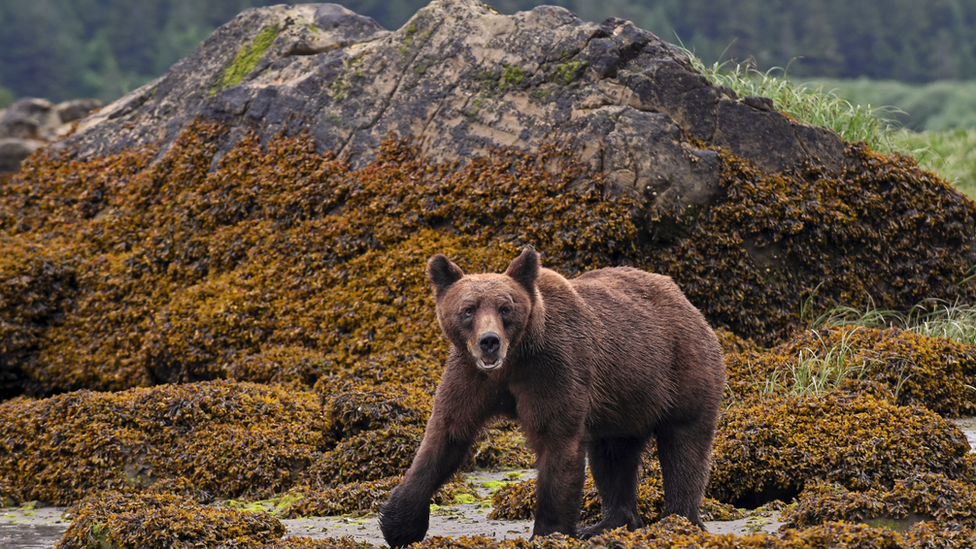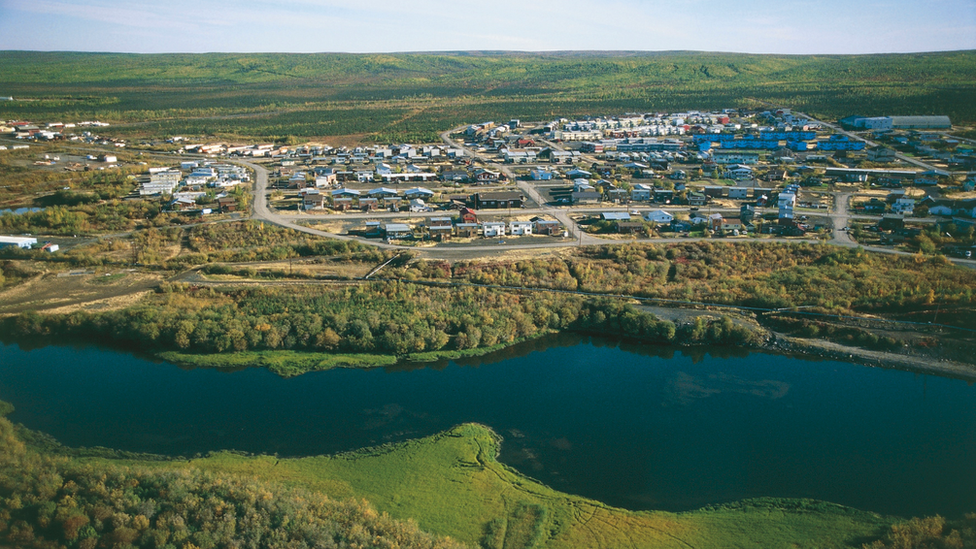Canada's grizzly bears move into Arctic north
- Published

Grizzlies are most commonly found on Canada's western coastal strip
There are more and more sightings of grizzly bears in Canada's High Arctic, and scientists see climate change as a likely reason.
Hunters and trappers of the Inuvialuit indigenous people say the bears are turning up around far-northern communities, external like Sachs Harbour and the islands of the Beaufort Sea, the National Observer news site reports.
"The grizzly bears are moving into new areas," says Inuvialuit Game Council chairman Vernon Amos, who grew up in Sachs Harbour.
He says grizzlies have long been known on the mainland of the Inuvialuit Settlement Region, including its main town Inuvik, but this leap north is relatively new.
He has seen a gradual change in the climate over the past 30 years, with the seasonal freeze being pushed back from August to the end of September or even early October.
Barren ground is increasingly giving way to grasslands and other vegetation more attractive to grizzly bears.
You may also be interested in:
Local reports are being collated by Doug Clark of Saskatchewan University, in a joint project with the Inuvialuit community to track the northwards movement of the bears.
He has installed four remote cameras in areas of verified sightings, and handed eight more cameras to hunters and trappers to deploy as they see fit.
'Climate sweepstakes'
Dr Clark sees the Arctic migration as part of a wider expansion of grizzlies across Canada, in the face of human encroachment on their natural habitat.
He has tracked the bears east and south to Wapusk National Park near Churchill on Hudson Bay - better known for its roaming polar bears, external - as well as to the north.
"I think it's entirely possible that grizzlies may have or will show up in northern Ontario, external" even further east, he told the CBC public broadcaster earlier this year.
The sustainable environment specialist believes a combination of human settlement and climate change is broadly working in favour of the grizzlies, for now.
"They're very much looking like one of the early winners in the climate change sweepstakes. But what that means in the long term, we don't really know, external," he told the Canadian Press news agency.

Winter is coming later each year to the Inuvialuit region
Reporting by Martin Morgan
Next story: Camels gift from EU bewilders Mauritanians
Use #NewsfromElsewhere to stay up-to-date with our reports via Twitter, external.